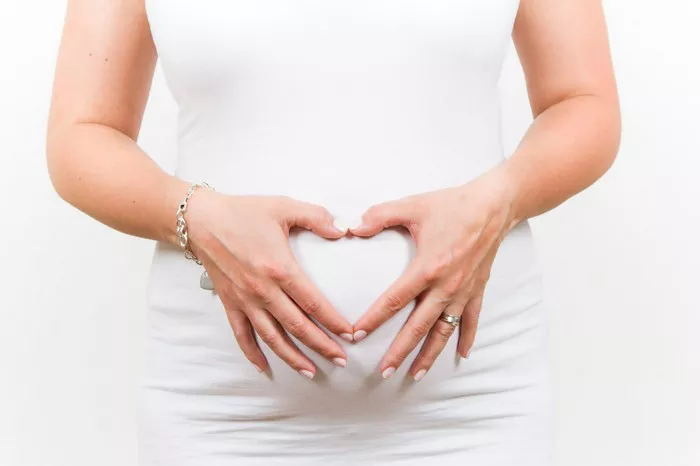The menstrual cycle is a crucial aspect of a woman’s reproductive health and plays a vital role in determining fertility. Understanding the phases of the menstrual cycle is essential for couples looking to conceive. Typically, the menstrual cycle lasts about 28 days, although variations are common. The cycle consists of several phases, including menstruation, the follicular phase, ovulation, and the luteal phase.
Menstruation Phase
The menstrual phase marks the beginning of the menstrual cycle and involves the shedding of the uterine lining. This phase typically lasts around 3 to 7 days and is characterized by menstrual bleeding. While conception is unlikely during menstruation, tracking this phase is essential for understanding the overall menstrual cycle.
Follicular Phase
Following menstruation, the follicular phase begins. This phase is characterized by the development of follicles in the ovaries, each containing an immature egg. As the follicles mature, they release estrogen, which stimulates the thickening of the uterine lining in preparation for potential pregnancy. The length of the follicular phase can vary but generally lasts from 7 to 21 days.
Ovulation
Ovulation is a pivotal phase in the menstrual cycle and occurs when a mature egg is released from the ovary into the fallopian tube. This typically happens around the middle of the menstrual cycle, approximately 14 days before the start of the next menstrual period. Ovulation is the most fertile time in a woman’s cycle, as the egg is available for fertilization for a limited period, usually around 12 to 24 hours.
Luteal Phase
After ovulation, the luteal phase begins. During this phase, the empty follicle transforms into a structure called the corpus luteum, which releases progesterone. Progesterone helps maintain the thickened uterine lining in preparation for implantation of a fertilized egg. If fertilization does not occur, hormone levels decline, leading to the shedding of the uterine lining and the start of a new menstrual cycle.
Identifying the Fertile Window
Determining the fertile window is crucial for couples trying to conceive. The fertile window includes the days leading up to and including ovulation when conception is most likely to occur. While the exact timing can vary from woman to woman and cycle to cycle, it typically spans a few days within the menstrual cycle.
One common method to identify the fertile window is by tracking changes in cervical mucus. Around ovulation, cervical mucus becomes clear, slippery, and stretchy, resembling the consistency of egg whites. Monitoring these changes can help pinpoint the fertile days.
Another approach is to track changes in basal body temperature (BBT). Basal body temperature rises slightly after ovulation due to increased progesterone levels. By charting daily temperatures, women can identify the shift indicating ovulation has occurred, thus identifying the fertile window.
Methods to Track Ovulation
Several methods are available to track ovulation and identify the fertile window accurately. Ovulation predictor kits (OPKs) are widely used and work by detecting the surge in luteinizing hormone (LH) that occurs before ovulation. When the LH surge is detected, ovulation typically occurs within 24 to 36 hours, indicating the onset of the fertile window.
Basal body temperature (BBT) tracking involves taking your temperature every morning before getting out of bed and recording it on a chart. A slight increase in BBT following ovulation can help confirm when ovulation has occurred, allowing couples to time intercourse accordingly.
Fertility tracking apps are also popular tools for monitoring menstrual cycles and predicting ovulation. These apps often incorporate various fertility indicators, such as BBT, cervical mucus changes, and menstrual cycle length, to estimate fertile days and optimize conception timing.
Frequency and Timing of Intercourse
Optimizing the timing and frequency of intercourse is essential for maximizing the chances of conception. Couples should aim to have intercourse during the fertile window, ideally in the days leading up to ovulation and on the day of ovulation itself. While frequent intercourse throughout the menstrual cycle can increase the likelihood of conception, it is particularly crucial during the fertile window.
Research suggests that having sex every 1-2 days during the fertile window is optimal for achieving pregnancy. However, timing intercourse to coincide with ovulation is key, as sperm can survive in the female reproductive tract for several days, increasing the chances of fertilization when an egg is released.
Myths and Misconceptions
Despite widespread information on fertility, several myths and misconceptions persist. One common myth is that women can only conceive on the day of ovulation. In reality, sperm can survive in the female reproductive tract for up to five days, meaning conception can occur if intercourse takes place in the days leading up to ovulation.
Another misconception is that certain sexual positions or activities can influence the likelihood of conception. While some anecdotal evidence may suggest otherwise, scientific research has not conclusively supported these claims. Ultimately, the timing of intercourse in relation to ovulation is the most critical factor in achieving pregnancy.
Health and Lifestyle Factors
Various health and lifestyle factors can impact fertility for both men and women. Maintaining a healthy weight through a balanced diet and regular exercise is essential, as obesity or being underweight can affect hormone levels and ovulation. Smoking, excessive alcohol consumption, and illicit drug use can also impair fertility in both men and women.
Additionally, certain medical conditions, such as polycystic ovary syndrome (PCOS) or endometriosis, can affect ovulation and fertility. Seeking treatment for these conditions and managing underlying health issues can improve the chances of conception.
When to Seek Professional Advice
While many couples are successful in conceiving through tracking ovulation and optimizing intercourse timing, some may encounter challenges along the way. If couples have been actively trying to conceive for over a year without success, or if there are known fertility issues, it may be time to seek professional advice.
Consulting with a healthcare provider, such as a gynecologist or fertility specialist, can help identify any underlying issues affecting fertility and explore potential treatment options. Diagnostic tests, such as hormone assessments, semen analysis, and imaging studies, can provide valuable insights into fertility health and guide personalized treatment plans.
Conclusion
In conclusion, understanding the menstrual cycle, identifying the fertile window, tracking ovulation, optimizing intercourse timing, dispelling myths, prioritizing health and lifestyle factors, and knowing when to seek professional advice are essential elements for couples navigating the journey to conception. By empowering themselves with accurate information and proactive strategies, couples can increase their chances of achieving their dream of starting a family.

























